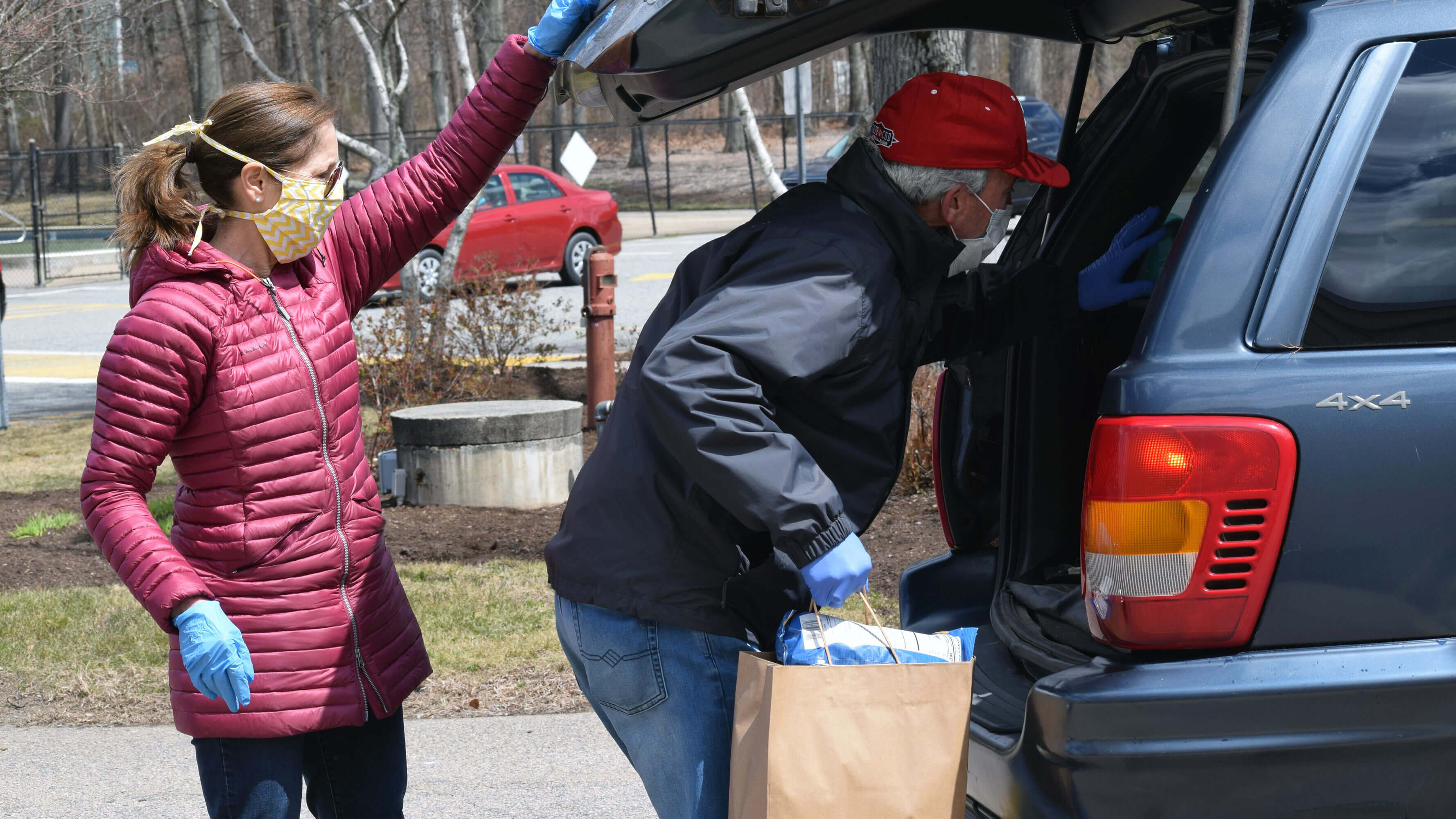Heather, a married mother of two, rolled down her car window, took a deep breath for courage and quietly asked the masked volunteer for an extra bag of free food.
Over the past few weeks, Heather picked up bags from the makeshift food bank at the Attleboro area Hockomock YMCA in Franklin, Massachusetts to deliver to her elderly neighbors. But today was different.
Heather was unexpectedly furloughed from her job due to COVID-19-related shutdowns — and now her own family needed help. As she took the bag full of food from the YMCA employee, she says relief spread though her body with the knowledge that her kids would have a healthy dinner that night.
“I was worried I would have to feed my kids boxed macaroni and cheese, but the bag was full of fruits and vegetables,” Heather says.
Heather’s experience with food insecurity is one of many playing out across America in the wake of the COVID-19 crisis. According to an April 2020 survey from Feeding America, a national nonprofit organization with a network of more than 200 food banks and 60,000 partner organizations, an estimated 40% of people seeking donations were visiting a food bank for the first time in their life. Equally concerning: 95% of its food banks saw more people needing help compared to last year, with an average 70% increase in demand for food assistance.

